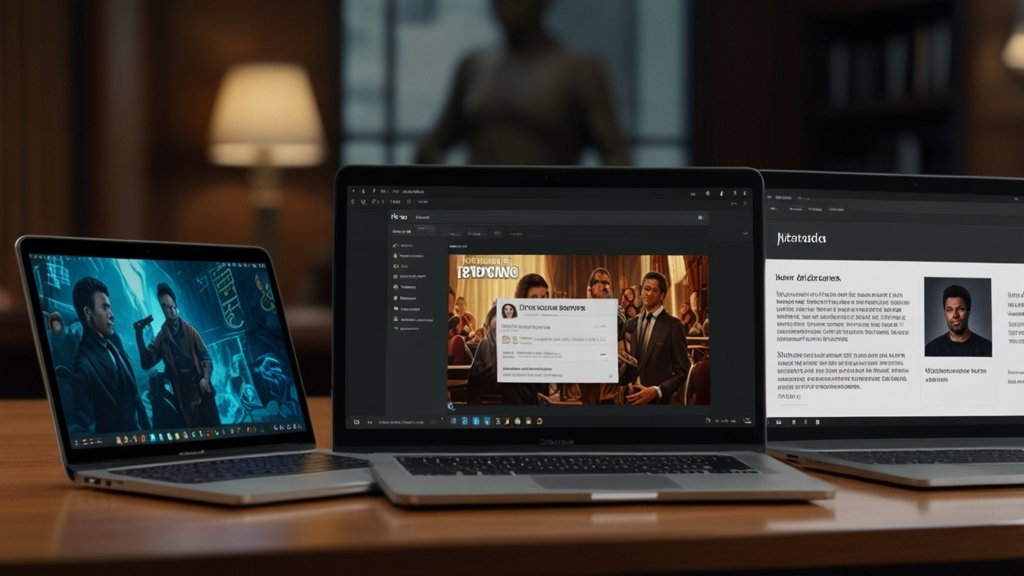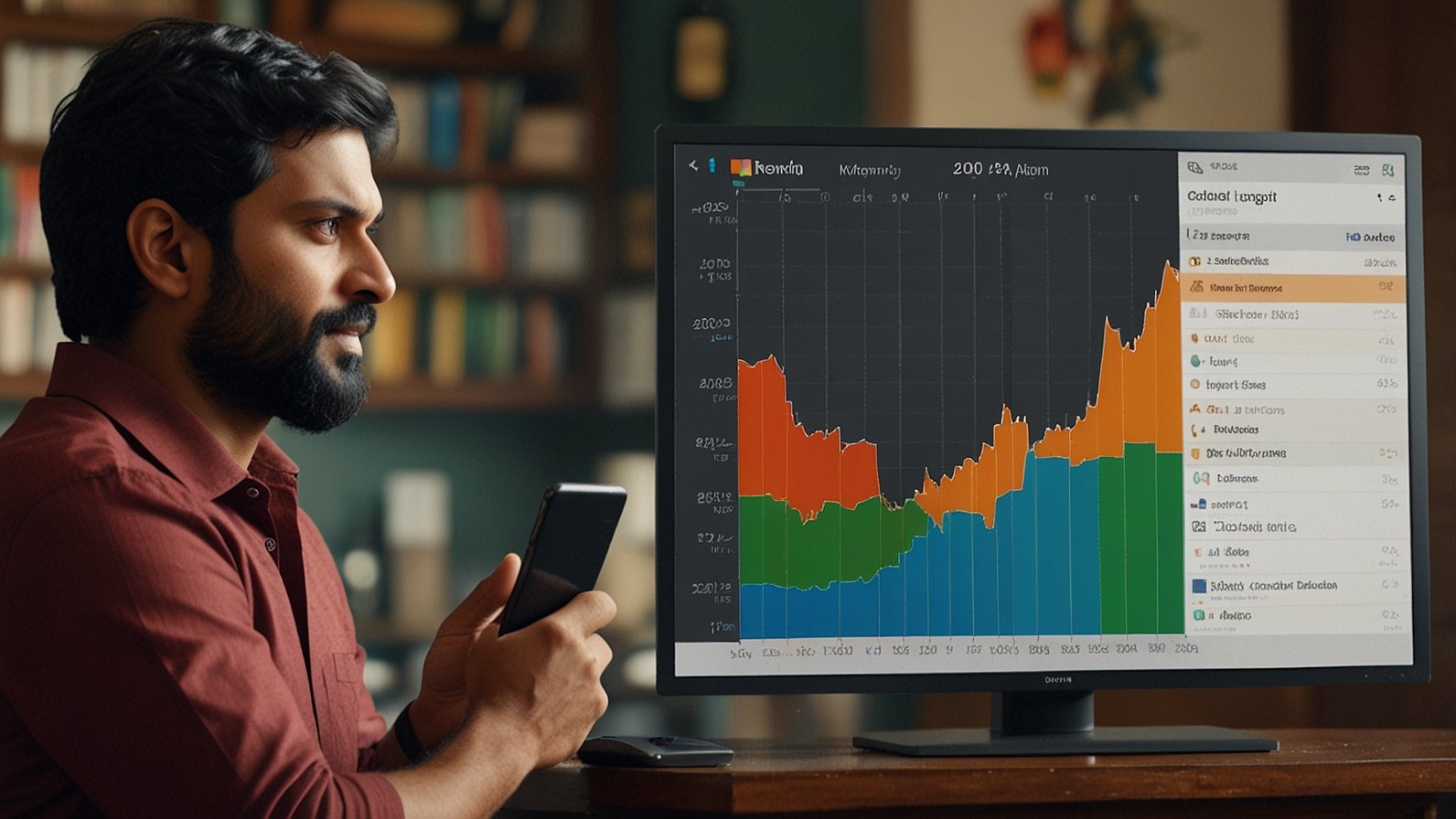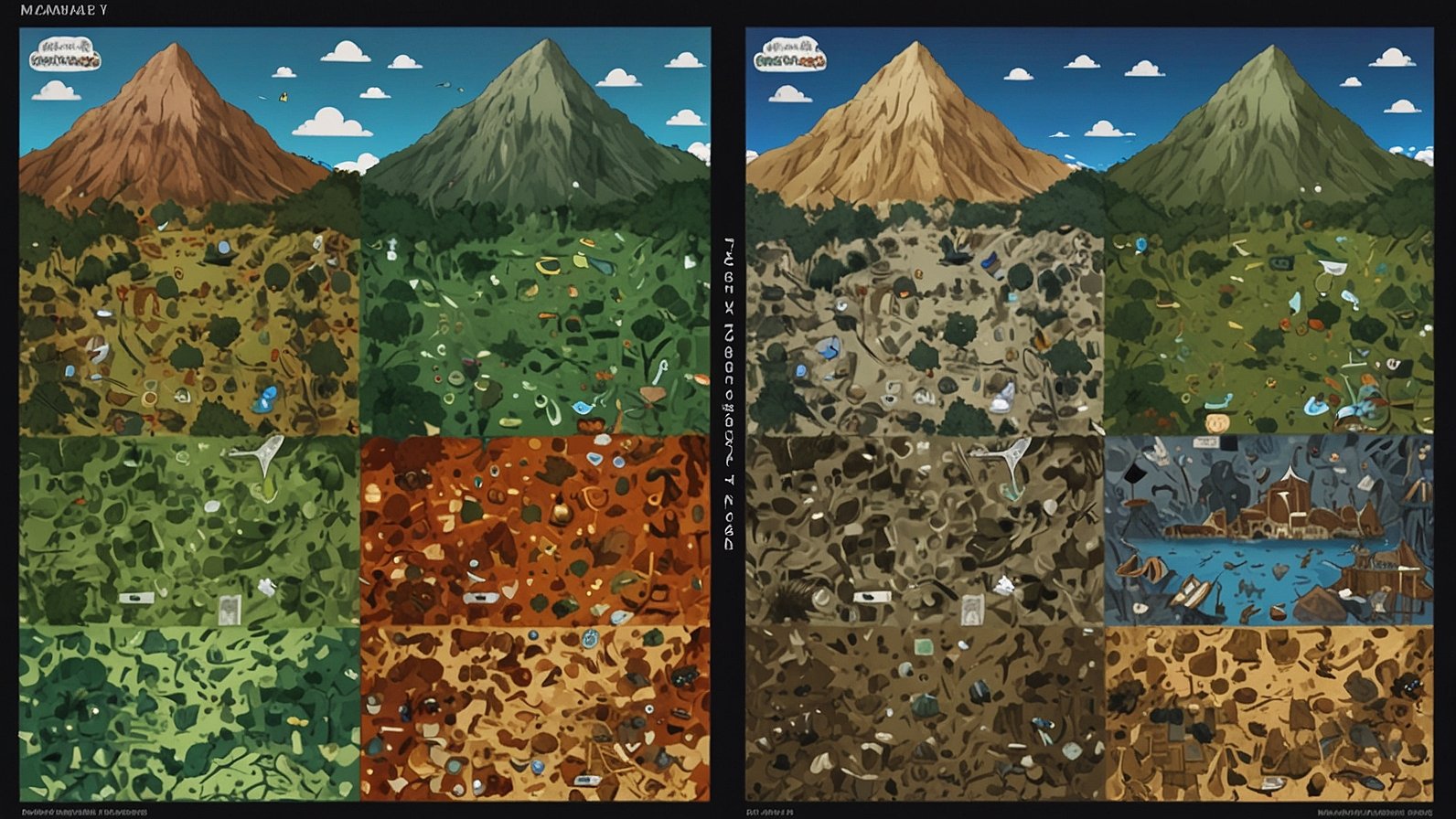Ever feel like you’re drowning in streaming subscriptions? Netflix, Hulu, Disney+, Max, Paramount+… the list goes on, and so does the monthly bill. It’s enough to make anyone nostalgic for the simpler times of flipping channels. Or maybe, just maybe, you’ve heard whispers in online forums or fleeting mentions on social media about a place called Zoechip. A promised land of free movies and TV shows, all in HD, no credit card required, no ads screaming at you? Sounds almost too good to be true, right?
Well, buckle up. Because that’s exactly the tightrope Zoechip walks. It’s a name that pops up consistently when folks search for “free movies online” or “watch series without subscription.” On the surface, it presents a user-friendly oasis in the desert of paywalls. Dig a little deeper, though, and you hit some very rocky, legally dubious terrain. As someone who’s spent years navigating the wild west of online content, from the early P2P days to the rise (and fall) of countless streaming portals, I’ve seen platforms like Zoechip come and go. Their allure is undeniable, but so are the significant caveats. Let’s peel back the layers on Zoechip and figure out what it really offers, how it works, and the crucial risks you need to understand before you even think about clicking play.
What Exactly is Zoechip? (It’s Not What You Might Think)
Let’s cut through the hype. Zoechip is not a streaming service in the traditional sense. Think of it less like Netflix or Hulu, and more like… a really ambitious, constantly updated directory. Or maybe a digital librarian who points you to books stored in other people’s (often questionably acquired) private collections.
Here’s the core of it: Zoechip aggregates links. That’s its primary function. It scours the web (specifically, third-party servers and file-hosting platforms), finds links pointing to movies and TV show episodes, organizes them neatly on its own website with descriptions, thumbnails, categories, and search functions, and presents them to you. It doesn’t physically host any of that video content on its own servers. When you click “play” or “download” on Zoechip, you’re not connecting to Zoechip’s storage; you’re being redirected to wherever that actual video file lives online – usually on sites like VidCloud, MixDrop, Streamtape, or a myriad of others.
This fundamental distinction is critical. It’s what places Zoechip firmly in a legal gray area and is the root cause of both its appeal and its inherent instability. They provide the map; others provide the (potentially stolen) treasure.
How Zoechip Works: The Magic (and Mechanics) Behind the Curtain
Okay, so how does this actually play out for you, the user? Honestly, it’s deceptively simple, which is part of its charm (and danger).
- Browse or Search: You land on the Zoechip website. The interface is usually clean, mimicking legit services. You browse categories (Genre, Year, Country, Top IMDb, etc.) or use the search bar for a specific title.
- Select Your Content: Find the movie or episode you want. Click on it. You’ll typically land on a details page with a synopsis, maybe IMDb rating, cast info, and crucially…
- Choose Your Link (and Quality): This is where the aggregation shines (and gets messy). Zoechip lists multiple links for the same title, often from different third-party hosting providers. These links are usually labeled with the server name (e.g., “StreamSB,” “Voe”) and the video quality (e.g., “HD,” “720p,” “1080p”). Sometimes there are multiple links per server/quality.
- Click and Redirect: You pick a link. Clicking it doesn’t start the stream immediately. You’re taken away from Zoechip to the actual hosting site (e.g., a StreamSB page).
- Play or Download (on the Host Site): On this third-party site, you might see ads (pop-ups, banners – sometimes aggressive) before finally getting a play button or a download option. The experience (ads, speed, reliability) depends entirely on that specific host site Zoechip linked to. Zoechip itself usually has minimal ads on its own pages.
- Consume: You watch or download the file from the host server. Zoechip’s job is done once you left their site for the host.
The “magic” is the aggregation and organization. The “mechanics” involve relying entirely on external, often fly-by-night servers whose primary revenue comes from intrusive ads or other dubious methods. It’s a house of cards built on shifting sand.
The Allure: Why Zoechip Tempts So Many Streamers
Let’s be real, ignoring the appeal is disingenuous. People flock to sites like Zoechip for concrete reasons. It solves real pain points in the current streaming landscape, however dubiously. Here’s what pulls users in:
- Pros: The Undeniable Appeal
- Zero Cost: This is the big one. Completely free. No subscriptions, no hidden fees, no free trials that auto-renew. It bypasses the subscription fatigue plaguing consumers.
- No Registration Required: You don’t need to create an account, hand over an email, or remember another password. Anonymity (or the illusion of it) is key for many users wary of data collection.
- Vast Library (On Paper): Aggregating from countless sources means Zoechip claims access to an enormous catalog – thousands of movies and TV series, including recent releases, classics, and obscure titles often unavailable on major platforms. It feels like everything is just… there.
- HD Quality (Often): While not guaranteed, many links offer HD (720p, 1080p) streams or downloads. The promise of free and high-quality is potent.
- User-Friendly Interface: Compared to the chaotic, ad-ridden hellscapes of early free streaming, Zoechip usually presents a clean, intuitive, and searchable interface. It looks legitimate, lowering the initial barrier.
- Download Option: The ability to download for offline viewing is a major plus, especially for those with spotty internet or who want to watch later.
The Other Side of the Coin: The Risks & Downsides You Can’t Ignore
Now, here’s where the shiny facade cracks. The convenience of Zoechip comes bundled with significant drawbacks and very real risks. Ignoring these is like walking into a minefield blindfolded.
- Cons: The Significant Drawbacks
- Legal Gray Area / Copyright Infringement: This isn’t just a footnote; it’s the foundation. Zoechip links to content hosted without permission from copyright holders (studios, distributors). While Zoechip itself might not host the files, it facilitates access to infringing material. This makes its entire operation legally precarious and ethically questionable. Using it might expose you to legal risk, depending on your jurisdiction (though individual user prosecution is rarer than site takedowns).
- Unpredictable Availability (The Takedown Tango): Because content relies on third-party hosts who are constantly targeted by copyright holders (via DMCA takedowns), links die. Frequently. That movie you found yesterday? Gone today. Or the link still exists, but the file is removed. This leads to frustration and a broken experience.
- Aggressive Ads & Pop-ups (on Host Sites): Remember, Zoechip itself might be relatively clean, but the host sites it links to are often cesspools of intrusive advertising. Expect pop-ups (sometimes malicious), redirects to scam sites, banner ads, and autoplay videos. An ad-blocker is essential, but even then, some hosts find ways around them. It’s a security nightmare.
- Malware & Security Risks: Those intrusive ads and pop-ups? They are prime vectors for malware, spyware, ransomware, and phishing scams. Clicking the wrong thing on a host site can infect your device. Downloading files carries an even higher risk.
- Unreliable Quality & Buffering: Quality isn’t always HD, despite the label. Streams can buffer endlessly, stutter, or suddenly drop in resolution due to overloaded or low-quality host servers.
- Dubious Subtitles & Dubious Sources: Subtitles, if available, are often fan-made or auto-generated, leading to inaccuracies or poor timing. The source of the files is unknown – could be cam rips, poor TV recordings, or decent web-dl copies. Consistency is non-existent.
- No Guarantees, No Support: The site could vanish overnight (as many predecessors have). Links break constantly. There’s zero customer support. You’re entirely on your own.
Navigating the Legal Gray Fog: Copyright & Legitimacy
This deserves its own spotlight because it’s the elephant in the room. Zoechip operates in a persistent state of legal ambiguity. Here’s the breakdown:
- The Aggregator Defense: Zoechip (and sites like it) often argue they are merely search engines or indexes, like Google, linking to publicly available information. They claim they don’t control the content on the host servers. This is their primary shield.
- The Copyright Holder Argument: Copyright owners counter that sites like Zoechip exist primarily to facilitate copyright infringement. They actively seek out, organize, and provide access to unauthorized copies of copyrighted works, knowing full well the sources are illegitimate. They profit indirectly (often through ads on their own site, even if minimal) from this infringing activity.
- The DMCA Dance: Zoechip might comply with individual DMCA takedown notices for specific links on its own site. But as soon as one link is removed, another often pops up elsewhere, or the host site simply re-uploads the file under a different URL. It’s a game of whack-a-mole.
- The Real Risk: While lawsuits targeting individual users accessing sites like Zoechip are less common (though not impossible, especially for uploaders/distributors), the primary legal battle is between copyright holders and the sites themselves. Zoechip’s existence is perpetually under threat. Domain seizures, ISP blocks, and legal pressure can shut it down or force it to constantly change domains (hence the proliferation of mirror sites like zoechip.cc, zoechip.to, etc.).
- Your Liability: Legally, accessing copyrighted material without permission is infringement in most countries. While enforcement against end-users is often lax due to scale, it is technically illegal. The risk is generally considered low for casual viewers, but it’s non-zero. Downloading carries a higher potential risk than streaming in some legal interpretations.
Frankly, the “gray area” feels less gray and more like a dimly lit path through a swamp. You might get through, but you’re likely to get muddy, and there are definitely alligators lurking.
Also Read: The 1944 Yellowstone Cast: Who’s Who in Taylor Sheridan’s Next Epic Dutton Saga?
Zoechip vs. The Rest: Understanding the Aggregator Model
To really grasp Zoechip, you need to understand how it differs from both legitimate services and other piracy models. It sits in a specific niche.
- Legitimate Streaming Services (Netflix, Hulu, Disney+, etc.): These pay hefty licensing fees to studios and distributors. They host the content on their own secure servers. You pay a subscription (or watch ads). Content is licensed, reliable, high-quality, and safe. No legal risk for the user.
- Illegal Hosting Sites (Old-School Piracy Hubs): These sites do host the infringing video files directly on their own servers. They are massive targets for law enforcement and takedowns and are much rarer now due to the ease of targeting them.
- Peer-to-Peer (P2P) Networks (Torrents): Users download fragments of files directly from other users’ computers. This involves actively uploading (distributing) while downloading, which significantly increases legal exposure. Requires torrent clients and carries higher risks of malware and ISP monitoring/throttling.
- Zoechip (The Aggregator/Link Site): Doesn’t host. Doesn’t require P2P software. Simply provides links to files hosted on other centralized servers (often specialized cyberlocker/file-hosting sites). Lower barrier to entry for users than torrents, but inherits the instability and risks of the host sites it links to.
Here’s a quick comparison to crystallize the differences:
| Feature | Legitimate Services (Netflix, etc.) | Illegal Hosting Sites | P2P/Torrents | Zoechip (Aggregator) |
|---|---|---|---|---|
| Hosts Content? | ✅ Yes (Own Servers) | ✅ Yes (Own Servers) | ❌ No (User-to-User) | ❌ No |
| Provides Links? | ❌ No | ❌ Direct Access | ✅ Yes (via .torrent file) | ✅ Yes (to Host Servers) |
| User Uploads? | ❌ No | ✅ Often | ✅ Required (Seeding) | ❌ No |
| Primary Cost | Subscription / Ads | Ads / Premium Accounts | Free (mostly) | Free |
| Legal Status | ✅ Legal | ❌ Illegal | ❌ Illegal (Distribution) | ⚠️ Gray Area / Facilitation |
| Content Stability | ✅ High | ❌ Low (Takedowns) | ⚠️ Variable (Seeders) | ⚠️ Low (Link Rot) |
| Malware Risk | ✅ Very Low | ❌❌ High | ❌ High | ⚠️ High (via Host Sites) |
| Ease of Use | ✅ Very High | ⚠️ Variable | ⚠️ Medium (Client needed) | ✅ High (Web-Based) |
| User Legal Risk | ✅ None | ⚠️ Low-Medium (Access) | ❌ High (Distribution) | ⚠️ Low-Medium (Access) |
Is Zoechip Safe? Security & Privacy Real Talk
“Is it safe?” That’s the million-dollar question, isn’t it? The short, honest answer? No, Zoechip is not inherently safe.
- The Host Site Hazard: The core danger lies not primarily on Zoechip’s own domain (though it could theoretically be compromised), but on the third-party host sites it sends you to. These sites are notorious for:
- Malicious Ads & Pop-ups: Designed to trick you into downloading malware or revealing personal info. Even accidental clicks can be disastrous.
- Drive-by Downloads: Malware that installs just by visiting the site (though modern browsers/OSes are better at blocking these).
- Phishing Scams: Fake login pages mimicking banks or other services.
- Download Dangers: Downloading files from these unknown host servers is significantly riskier than streaming. Files can be disguised malware (.exe files renamed as .mp4/.mkv) or bundled with viruses.
- Privacy? What Privacy? While Zoechip itself doesn’t require registration, your ISP can see you’re visiting Zoechip and the host sites. Some host sites might try to track your activity or plant cookies. Using Zoechip without robust protection (like a reputable VPN and a top-tier ad-blocker at minimum) is frankly reckless from a security standpoint.
- The Illusion of Safety: The clean Zoechip interface lulls users into a false sense of security. The moment you click a link, you’re in the wild west. Stay vigilant.
The Unpredictable Reality: Availability & The Takedown Tango
One day it’s there. The next day? Poof. Gone. That’s the reality of relying on Zoechip for your entertainment.
- Link Rot is Constant: Copyright holders (or anti-piracy firms they hire) constantly issue DMCA takedown notices. Host sites comply (sometimes) by removing the specific infringing file. The link on Zoechip then points to nothing, or an error message. Finding a working link becomes a chore.
- Domain Hopping: Zoechip itself faces legal pressure. Its main domain (like .com, .to, .cc) can be seized or blocked by ISPs. This forces them to constantly shift to new domain names (mirrors). Users have to hunt for the latest working URL, which itself can be risky (scam clones abound).
- Host Server Instability: The free host servers Zoechip relies on are often overloaded, underfunded, or simply disappear overnight when legal pressure mounts or revenue dries up. Slow speeds, buffering, and sudden downtime are common.
- Content Gaps: Just because Zoechip claims 10,000+ titles doesn’t mean you can reliably find or play any specific one you want, when you want it. New releases might appear quickly but vanish just as fast. Older or niche content links are harder to find and more likely dead.
Beyond Zoechip: Exploring Legitimate (and Affordable) Alternatives
Look, I get the frustration with subscription costs. But honestly? The risks of Zoechip just aren’t worth it for most people. The good news is there are plenty of legitimate ways to stream affordably, or even free, without venturing into the gray zone:
- Free Ad-Supported TV (FAST) Services: Pluto TV, Tubi, Freevee (Amazon), The Roku Channel, Crackle. Massive libraries of movies and shows, completely free. Supported by ads, but usually far less intrusive than pirate host sites. Legit, safe, and legal.
- Library Services: Kanopy and Hoopla. Free with your library card! Offer movies, documentaries, TV series, ebooks, audiobooks. Selection varies by library, but often includes critically acclaimed and indie titles.
- Trial Periods: Rotate through free trials of premium services (Netflix, Hulu, Disney+, etc.). Just remember to cancel before billing!
- Ad-Supported Tiers: Many major services now offer cheaper plans with ads (Hulu, Paramount+, Peacock, Max).
- Bundles: Look for telecom or other service bundles that include streaming subscriptions (e.g., some mobile plans, internet packages).
- Rent or Buy Digitally: Services like YouTube, Amazon Prime Video, Apple TV, Vudu. Pay-per-view for the specific movie or show you want, often cheaper than a monthly sub if you don’t watch constantly. Own it digitally.
- Physical Media: DVDs/Blu-rays seem old-school, but buying used or borrowing from the library is incredibly cheap and safe. No buffering, highest quality, no takedowns.
The argument that “there’s no affordable legal option” simply doesn’t hold water anymore. It requires a shift in mindset from “I want everything, right now, for free” to “What’s available legally within my budget?”
The Bottom Line: Should You Use Zoechip? A Candid Perspective
So, after all this, what’s the verdict? As a human being who understands the appeal of free and easy, but also as someone who’s seen the fallout from malware and the importance of supporting creators… here’s my take:
I cannot recommend using Zoechip.
The legal ambiguity is a constant cloud. The security risks posed by the host sites are significant and very real. The frustration of dead links and unreliable quality undermines the whole point of convenience. While the chance of you personally facing legal consequences for merely streaming might be statistically low, it’s not zero. And the risk to your device and data is high.
Zoechip exists because it exploits a gap between consumer desire (free, everything, now) and the legitimate market. But that gap is closing rapidly with robust free, ad-supported legal options (FAST services) and more flexible pricing tiers.
Is Zoechip technically impressive in its aggregation? Sure, in a chaotic, scraping-the-web kind of way. Is it a sustainable or ethical way to consume content? Absolutely not. It’s a house built on sand, constantly eroding, and you risk getting caught in the collapse – legally, digitally, or just through sheer frustration.
You May Also Read: Spanish D 94: Decoding the Internet’s Most Enigmatic Glitch Art Phenomenon
Conclusion: Convenience at What Cost?
Zoechip presents a seductive illusion: a vast ocean of free entertainment, available instantly, without barriers. It taps into genuine frustrations with the fractured, expensive legitimate streaming market. And frankly, its interface often does make finding that illusion easier than many older piracy methods.
But here’s the unvarnished truth, the human take after years watching this space: That ocean is polluted. The waters are teeming with malware sharks, the currents are unpredictable (dead links, takedowns), and the very ground beneath it (its legal standing) is constantly shifting and eroding. The “free” price tag comes with hidden, potentially very expensive, costs – to your device’s security, your personal data, and the creative industries whose work you’re consuming without supporting them.
The landscape of legal, affordable streaming has evolved dramatically. Free, ad-supported services offer massive libraries safely. Libraries offer Kanopy and Hoopla. Bundles and ad-tiers make premium content more accessible. Choosing Zoechip in 2024 feels increasingly like choosing a rickety rope bridge over a gorge when there’s a paved, safe road just a little further downstream. Sure, the bridge might get you across faster this one time. But is that gamble really worth the potential plunge?
Where do you stand on the balance between convenience, cost, and risk? Have you found legit alternatives that satisfy your streaming needs without the gray-area anxiety? Let me know your thoughts below – the conversation about how we consume media ethically and affordably is more important than ever.
FAQs
Let’s tackle those common queries head-on:
Is Zoechip legal?
Zoechip operates in a legal gray area. It doesn’t host copyrighted content itself but provides links to third-party sites that often do so without permission. This facilitation of copyright infringement makes its legality highly questionable and constantly under threat. Using it to access copyrighted material without permission is copyright infringement in most places.
Is Zoechip safe to use?
Not really. The main danger comes from the third-party host sites Zoechip links to. These sites are infamous for aggressive, malicious ads, pop-ups, and potential malware. Downloading files carries an even higher risk. Using a top-tier VPN and ad-blocker is essential but doesn’t eliminate all risk. Exercise extreme caution.
Why do Zoechip links keep dying?
Copyright holders issue takedown notices (DMCA) to the host sites where the actual files are stored. When the host site removes the file, the link on Zoechip breaks. Host sites themselves also get shut down or remove content due to legal pressure or server issues. This “takedown tango” is constant.
Does Zoechip have an app?
You won’t find Zoechip on official app stores (Google Play, Apple App Store) due to its content nature. Any “Zoechip app” found elsewhere (third-party stores, APK downloads) is highly likely to be unofficial, potentially malicious, and should be avoided.
Are there any good Zoechip alternatives?
If you mean similar free aggregator/link sites: Yes, many exist (names constantly change – e.g., Fmovies variants, 123Movies clones, etc.), but they share the same legal issues and security risks as Zoechip. Legitimate alternatives are the Free Ad-Supported TV (FAST) services like Tubi, Pluto TV, Freevee, Roku Channel, and library services like Kanopy/Hoopla.
Can I get in trouble for using Zoechip?
While large-scale enforcement typically targets the sites and uploaders/distributors, accessing copyrighted material without permission is technically illegal. The risk to an individual casual streamer is generally considered low, but not non-existent, and varies significantly by country. Downloading carries higher potential risk than streaming. Using a VPN can mask your activity from your ISP but doesn’t make the act legal.
Why does Zoechip keep changing its website address (domain)?
Its main domains (.com, .to, .cc, etc.) frequently get seized by authorities, blocked by internet service providers (ISPs), or face legal pressure. They create new “mirror” domains to stay accessible. Finding the latest real one can be tricky and risky due to scam copycat sites.











